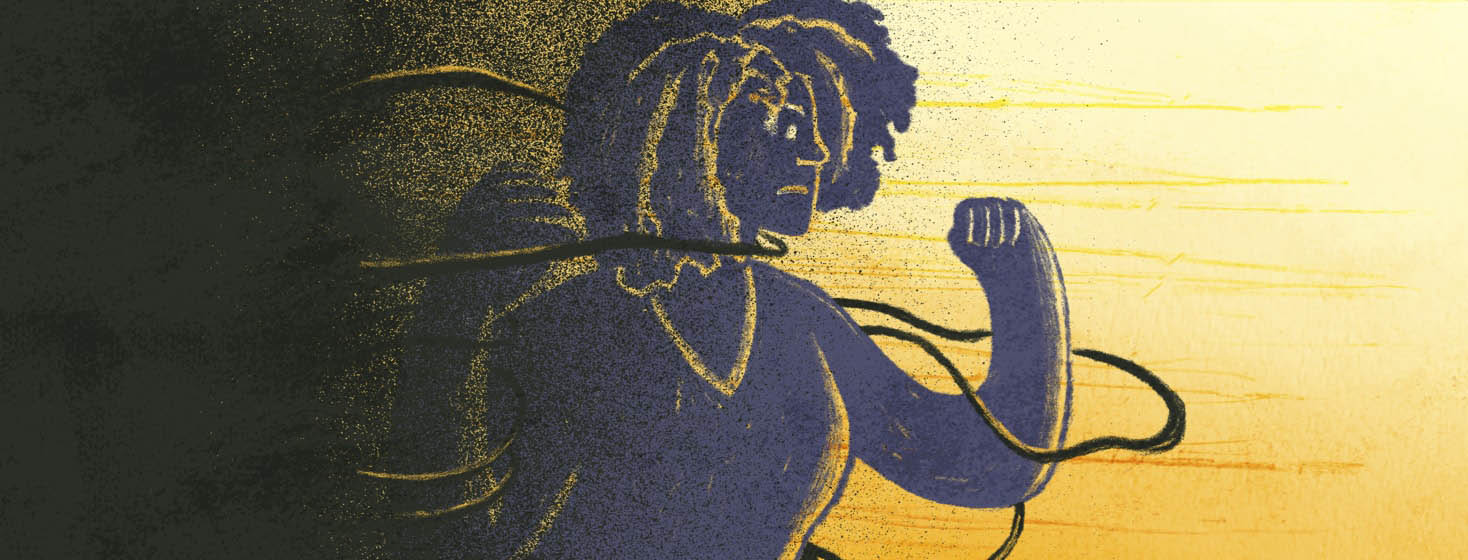3 Steps to Protect Your Mental Health
There is an unending array of emotions that any individual can carry: joy, love, hardship, loss, and pain. From the heights of happiness to the depths of loss, experiencing emotions is what makes the human experience unique.
When you live with daily pain and fatigue, those emotions feel heavier which in turn takes a toll on your emotional health.
The connection between physical and mental health
A few years ago, shortly after my diagnosis, I was going through a particularly painful time. I allowed the pain and fatigue from my psoriatic arthritis to dictate my emotions. I got so angry when my joints hurt. I was frustrated and ashamed.
I felt sorry for myself, mourned who I used to be, and wallowed in the pain that I was awakened by every morning. Each day looked bleak because of the way my physical pain impacted my mental health.
After fighting my way through this difficult time, I really realized how important it was to take steps to protect our mental health, especially during a flare, when our physical health is at its worst.
Finding the balance between the reality of the situation and our ability to make a conscious choice about what to focus on is difficult. But it does become easier over time and with practice. Almost similar to the idea of mind over matter.
Tips to protect your mental health
Let’s be honest, no one ever says: “Wow, I’m in so much pain and I’m so happy about it.” That is absolutely ridiculous. However, there are things that we can do to mitigate the worst of the emotional damage that comes as a result of dealing with pain.
It isn’t easy to take steps to protect your mental health but is it important to try and fight back against the possible downward spiral that comes from focusing too much on our own pain and regret.
Over time, I have learned a few steps to help protect my mental health, especially when my body is really rebelling against me. My hope is that with these tools, you might be able to lessen the burden that comes when you live life with psoriatic arthritis.
Identify the emotion
If you find your physical pain taking a toll on your mental health, I first find it helpful to identify your strongest emotion. Is it sadness? Anxiety? Anger? Put a name on the feeling. Or even the mix of several emotions.
Do my aching and fatigue cause me to feel sad because I’ve missed out on activities? Am I frustrated that my hands won’t allow me to make my own dinner? Is my fatigue forcing me to be looked down on at work? Are you mad, frustrated, angry, sad?
Identify the why
Once you know the why - you can process the emotion. Why do I seem to always get mad at myself if I have a “bad” or “worse than usual” type of day? Would I even think of doing that to others? Getting mad at them for feeling bad? Of course not. So why do I so often do it to myself?
Maybe I am just mad in general and it is easier to take that anger out on myself as opposed to others. Either way, figure out your “why” in order to better understand where you stand emotionally.
Acceptance and others
After all, despite being angry at my disease, it isn’t going to get me anywhere. Being angry at it doesn’t make it go away. But it is okay to be angry about it. It is okay to be sad, hurt, afraid, and anxious. These are perfectly reasonable reactions to our physical pain and fatigue.
We take control over the things we can control
So now what? Do we sit and wallow in what we are feeling? Maybe for a little while at least. Then we pick ourselves up and move on. Instead of focusing on reasons to be angry, we try to find reasons to have hope.
We find support and understanding in others. Finally, we do our best to direct our attention outward towards helping others as opposed to inward on our own pain and suffering.
All things said and considered, I do want to add that I am not a mental health professional. I’m simply sharing the process that I’ve developed that usually works well for me. If you are struggling with managing your mental and emotional health while living with psoriatic arthritis, always consider seeking professional help.

Join the conversation